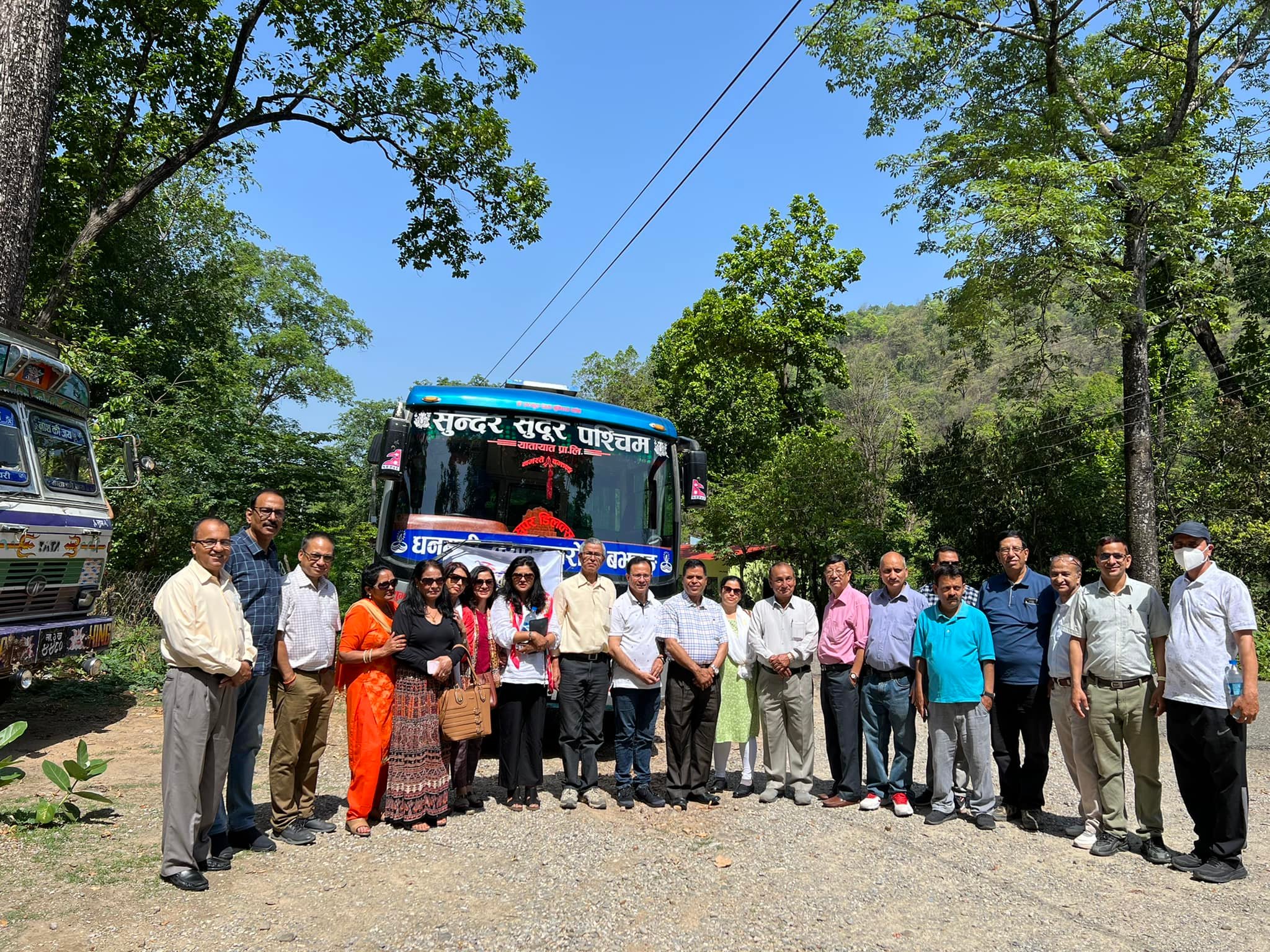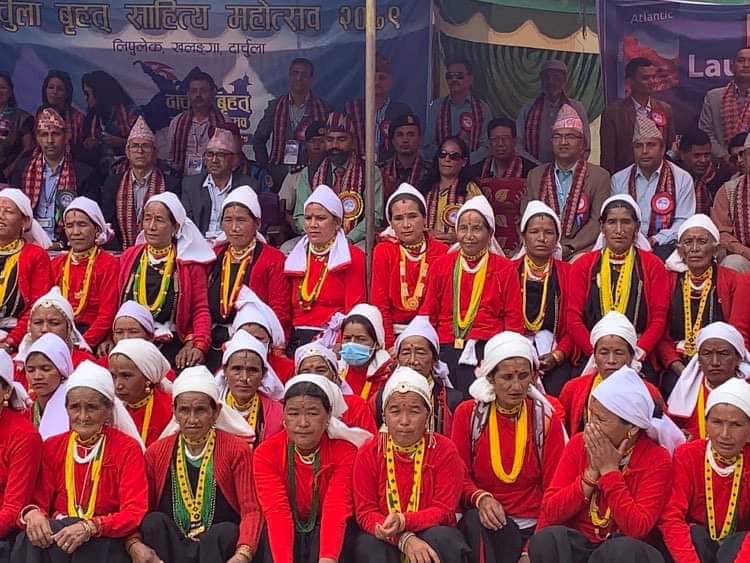The Journey Of Kishan Singh Dhami: From A Dream Of Deuda Singer To Nepali Literary

Kishan Singh Dhami is a renowned Nepali poet, novelist, and story writer who has made significant contributions to Nepali literature. He has authored 8 books over a span of 25 years, including the bestsellers Sawari Chalakra tin ka Byathais, Andhakar ko anusandhan, and Santi khojdai. His novel, Email for College, has also gained widespread popularity among readers.
Born in Darchula District, Kishan Dhami grew up in a humble family with limited income. Despite the financial struggles, his parents made sure to fulfill his every desire. After completing his school education, he moved to Kathmandu with a dream of becoming a Deuda singer. However, due to financial constraints, he had to give up his dream and find a job to make ends meet. He believes that poetry is a powerful tool that can touch the heart of the reader, encourage nationalism or jingoism, criticize society in a constructive way, depict the values of society, inspire the reader to do something, cultivate love, solace the soul, or even sow the seeds of hate. Kishan Dhami prefers writing poetry over novels and stories as he feels it gives him more satisfaction. He believes that poetry accurately depicts the realities of society and the world. Despite his success as a writer, he remains humble and grateful to his parents for their love and support throughout his life.
1. As someone who loves and promotes Nepal and the Nepali language, but currently resides in the USA, how has your experience been living in the USA?
Some people find living in the USA to be a great opportunity for personal and professional growth, while others may face challenges adjusting to a new culture and way of life. It’s common for people to feel homesick or miss their friends and family in Nepal.
Nepali people may encounter cultural differences, language barriers, and discrimination in the USA, which can be difficult to navigate. However, there are also many supportive communities and resources available to Nepali people living in the USA, such as cultural organizations, language classes, and social events. I am participating in Nepali festivals and also continuing to write poetry.
Ultimately, everyone’s experience living in the USA is unique, and it depends on various factors such as their personal circumstances, cultural background, and individual preferences.

2. You organized a remarkable literature festival in your hometown, which is located on the border of Nepal and India. What message did the literature festival convey ?
It highlights the purpose and message of the literature festival that was organized in the hometown located on the border of Nepal and India. The message conveyed by the festival was to protect and preserve the local culture and literature of Nepal, while also showcasing the cultural and social issues faced by the community in order to establish their unique identity to the world.
3. Do you think there are any distortions in Nepali literature, according to your opinion?
Certainly, there can be challenges faced by newcomers in any field, including literature. In Nepali literature, some individuals may feel that there is a lack of encouragement for new writers to establish themselves and share their work. Additionally, there may be a lack of support among established writers to mentor and guide new writers in their careers. There may be a lack of inclusivity and representation of diverse perspectives within Nepali literature. This can result in some voices being marginalized or unheard, which can limit the range and depth of the literature produced. Overall, it’s important to address these issues and work towards creating a more supportive and inclusive literary community that encourages and amplifies the voices of all writers.
4. Recently you published a collection of poems titled ‘Atlantic’ a few months ago. What kind of feedback did you receive from readers and friends ?
Atlantic is a creative poetry collection that carries the feelings of struggling people and their stories. I received tremendous support from friends and family members, and ultimately, I’m happy with how it was received. In fact, I even received a best wishes letter from New York City Mayor Eric Adams.
5. What inspired you to start writing poetry?
I used to read the Ramayan, which had been translated from Sanskrit to Nepali by Bhanubhakta. While my brothers were reading this book, I became impressed with it. During this initial phase, Dr. Dubasu Chettri encouraged me to start writing poetry.

6. What are your plans for the future in your literary journey ?
I am preparing to write 3-4 story books and a novel that will be available to both Nepali and worldwide readers. These books will be written in English, with the aim of reaching a broader audience and engaging readers from diverse backgrounds.
In today’s globalized world, it is increasingly important for writers to consider their potential readership and cater to a wide range of audiences. Writing in English is a strategic choice, as it is a widely spoken and understood language across the world. By writing in English, I hope to connect with readers not only in Nepal but also in other parts of the world, who share a passion for storytelling and are interested in exploring different cultures and perspectives.
These books will be aimed at both children and adults, as I believe that literature has the power to captivate and inspire individuals of all ages. In writing these books, I hope to offer readers an opportunity to escape into new worlds, meet new characters, and learn new things about themselves and the world around them.
Overall, my plan is to create stories that are engaging, thought-provoking, and accessible to a broad audience. By writing books that are both entertaining and informative, I hope to contribute to the literary landscape in Nepal and beyond.
7. How do you think your literature benefits society ?
Literature can serve as a mirror that reflects the complexities and nuances of human experience, providing insight into different perspectives, cultures, and social issues. Literature can also serve as a vehicle for social and political critique, challenging dominant ideologies and fostering critical thinking and dialogue.
Moreover, literature can help promote empathy, understanding, and a sense of connection between individuals from diverse backgrounds. By immersing readers in new worlds and introducing them to new characters and experiences, literature can expand readers’ perspectives and encourage them to see the world from different angles.
Literature has the potential to entertain, educate, and inspire readers, contributing to a more informed, engaged, and empathetic society.
by Dekshya Shrestha
https://newyorkcitypost.com/


Comments: